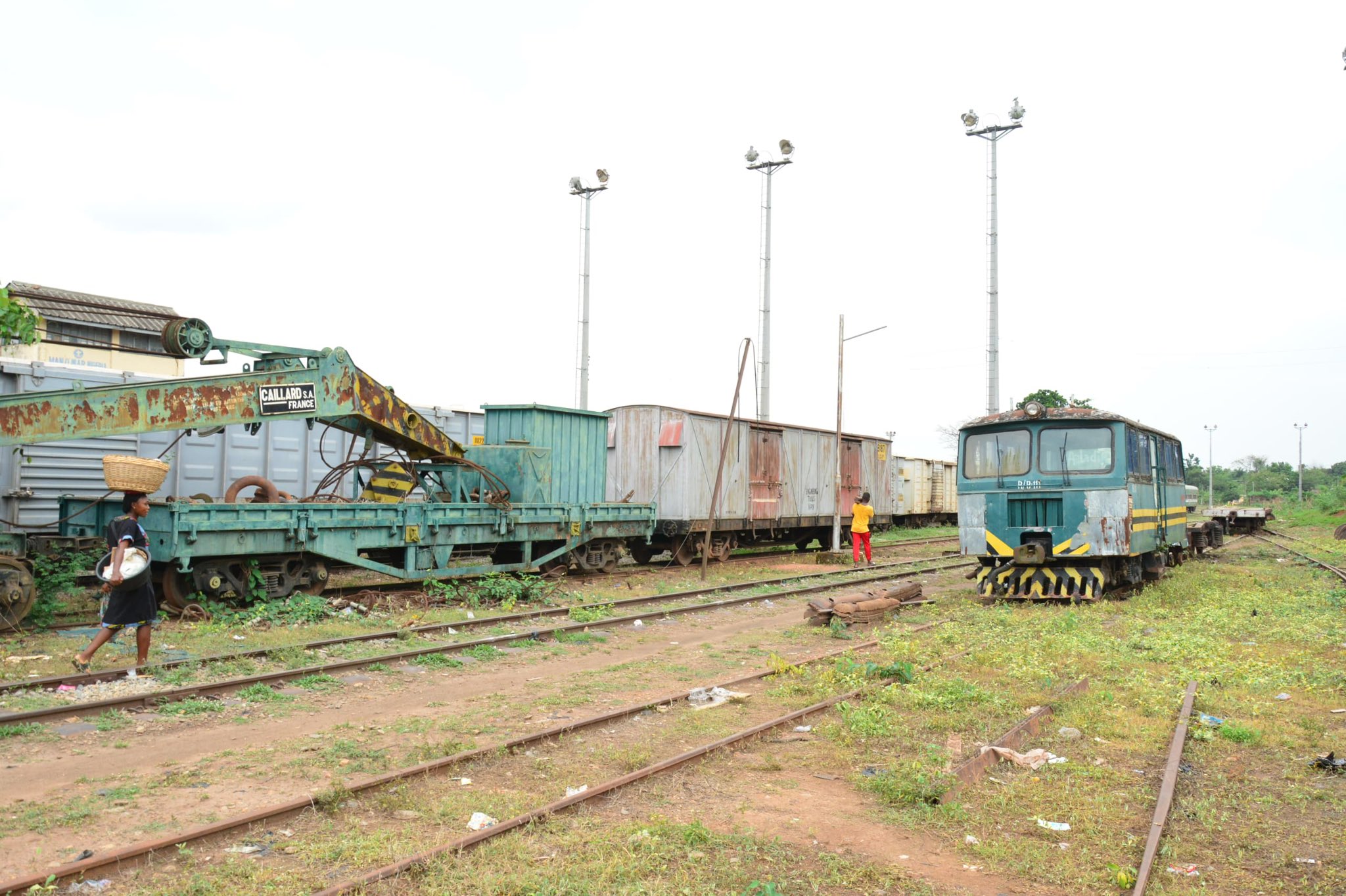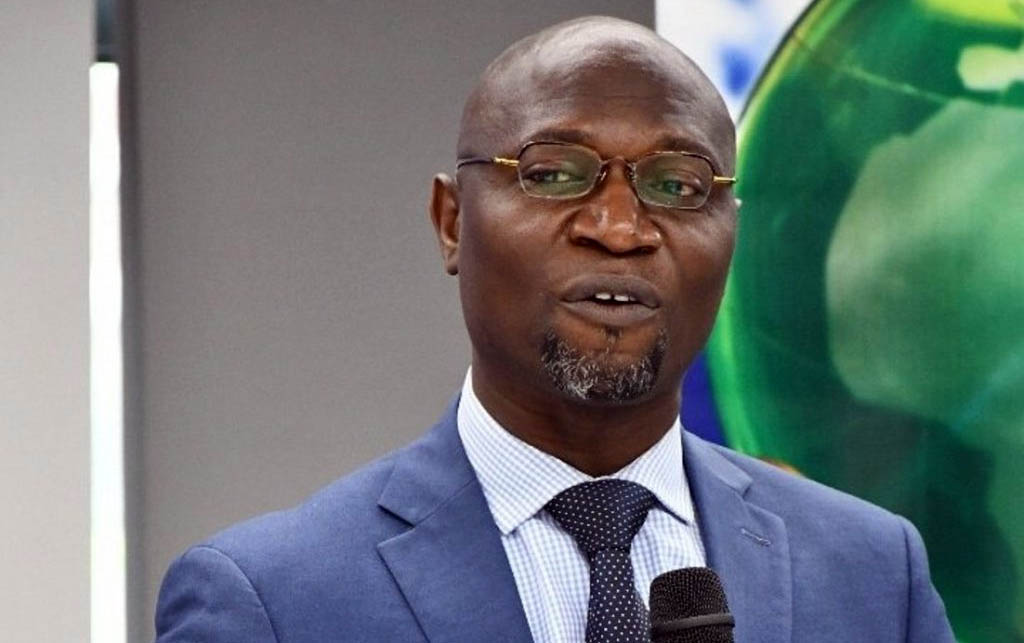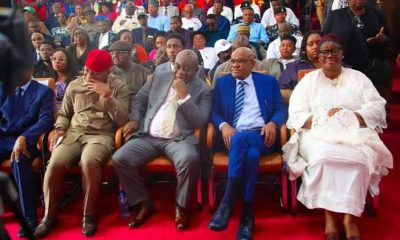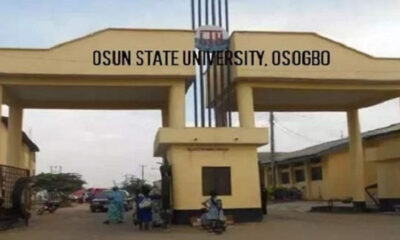Business
Sell excess dollars in 24 hours, CBN orders banks

Sell excess dollars in 24 hours, CBN orders banks
The Central Bank of Nigeria, CBN, has ordered Deposit Money Banks to sell their surplus dollar stock by February 1, 2024, as part of new measures to stabilize the country’s fluctuating currency rate.
The CBN, which made the announcement in a fresh circular issued on Wednesday, also urged lenders not to hold extra foreign currency for profit.
According to officials, the central bank believes that some commercial banks have long-term foreign exchange positions to profit from the erratic swings of exchange prices.
The new circular introduces a set of guidelines aimed at reducing the risks associated with these practices.
In the circular titled, “Harmonisation of Reporting Requirements on Foreign Currency Exposures of Banks”, the CBN raised concerns over the growing trend of banks holding large foreign currency positions.
The latest circular came barely 48 hours after the CBN released a circular, warning banks and FX dealers against reporting false exchange rates, among others.
The new development also came on the heels of the adjustment of the methodology used for the calculation of the nation’s official exchange rate by the FMDQ Exchange.
The review has pushed the Nigerian Autonomous Foreign Exchange Market rate (official exchange rate) from approximately N900/dollar to N1,480/dollar. The naira closed at 1,450/dollar at the parallel market on Tuesday.
The move which is aimed at unifying the official and parallel market exchange rates has been hailed by economists and other stakeholders.
READ ALSO:
- Dollar scarcity: BDC operators shut down operation in Abuja
- Four kidnappers arrested after collecting ransom in Edo
- Lagos carjacker Emmanuel Iwuno bags death sentence
- Liverpool thrash sorry Chelsea to stretch Premier League lead
They however challenged the CBN to clear FX backlogs estimated at over $5bn and also fund FX demands at the official market. This, they said, would forestall a situation whereby the parallel market rate would move away from the official rate again.
Apparently as part of the moves to fund FX request at the official window, the CBN in its latest circular released on Wednesday accused banks of holding excess foreign exchange positions.
As a result, the central bank gave lenders until February 1, 2024 (today) to sell off excess dollar positions.
The circulated, dated January 31, 2024, was signed by the Director, Trade and Exchange, CBN, Dr. Hassan Mahmud, and representative of the Director, Banking Supervision, CBN, Mrs. Rita Sike.
The circular read in part, “The Central Bank of Nigeria has noted with concern the growth in foreign currency exposures of banks through their Net Open Position (NOP). This has created an incentive for banks to hold excess long foreign currency positions, which exposes banks to foreign exchange and other risks.”
To address these issues, the CBN in the circular issued prudential requirements that banks must follow. A key focus of these requirements is the management of the Net Open Position (NOP).
The NOP measures the difference between a bank’s foreign currency assets (what it owns in foreign currencies) and its foreign currency liabilities (what it owes in foreign currencies).
The circular mandates that the NOP must not exceed 20 per cent short or 0 per cent long of the bank’s shareholders’ funds.
This calculation, the apex bank said, must be done using the Gross Aggregate Method, which provides a comprehensive view of the bank’s foreign currency exposure.
Furthermore, banks with current NOPs exceeding these limits are required to adjust their positions to comply with the new regulations latest by February 1, 2024.
Additionally, banks must calculate their daily and monthly NOP and Foreign Currency Trading Position (FCT) using specific templates provided by the CBN.
The CBN also directed banks to maintain adequate stocks of high-quality liquid foreign assets, such as cash and government securities, in each significant currency.
According to the circular, all banks are required to adopt adequate treasury and risk management systems to provide oversight of all foreign exchange exposures and ensure accurate reporting on a timely basis.
Banks are expected to bring all their exposures within the set limits immediately and ensure that all returns submitted to the CBN to provide an accurate reflection of their balance sheets.”
Finally, the CBN warned banks that non-compliance with the NOP limit would result in immediate sanction and suspension from the foreign exchange market.
READ ALSO:
- What must be done to make naira rise again – Reno Omokri
- Over 30 feared dead as tanker explodes in Imo forest
- OAUTHC sacks 2,000 health workers over illegal recruitment
In the half of 2023, First Bank, UBA, Zenith, Access, and GTB reported a combined N1.38tn in forex revaluation gains.
The apex bank at the time issued a directive instructing commercial banks to resist using their foreign exchange revaluation gains for dividends and operational expenditures. It noted that “Banks that exceed the NOP prudential limits due to the FX revaluation shall be granted forbearance for the breach upon application.’’
A top bank executive, who spoke on condition of anonymity, said the new circular would force banks to sell off excess dollar liquidity exceeding $5bn.
The top banker said, “Just as some Nigerians prefer to keep their money in dollars because naira is not a good store of value, banks also hold excess dollar liquidity to make gains. They do their own at institutional level. What the CBN is saying with this new circular is that, you cannot hold excess dollar liquidity again. Any foreign exchange you are holding must be committed to something, a transaction or obligation you can proof. Banks have made a lot of revaluation gains. Some banks, I believe, got approval under the last administration to hold more dollar than the requirement. The idea is that if banks sell all these excess dollars, there will liquidity and the exchange rate will stabilise. Foreign investors will come in.”
Naira trades
Meanwhile, the naira closed at N1,455.59/$ at the official window on Wednesday, according to the FMDQ Securities Exchange. This is a 1.82 per cent appreciation from the N1482.57/$ it closed trading on Tuesday.
At the parallel market, it lost N61 to trade at N1,511/$. A Bureau De Change operator, Malam Ibrahim, told The PUNCH, “For now, we are selling between N1,511/$ and N1,512/$. Earlier today, the dollar was sold between N1,535/$ and N1,540/$.”
Another operator said he could only sell at N1,510/dollar. However, a source at the market informed our correspondent of a ‘no sales policy’ to be implemented by the BDC union tomorrow.
READ ALSO:
- Senate summons CBN governor over weak naira, inflation
- Zamfara gov launches state security outfit, says no negotiation with bandits
- Mining cave collapses in Bauchi, four women killed
The source said the decision was taken today after serious deliberations on how to reduce the fall of the naira.
“Nobody is coming to market tomorrow. We want to close the market because honestly, the naira is just crashing anyhow. This was caused by some media reports this week that the dollar was now selling for N1,500 even though we were still selling at N1,400. Now everybody is blaming black market operators and that’s why we decided that the market will remain closed tomorrow,” the source said.
“We will resume next tomorrow, and the rate should be less than N1,400/$,” the source added.
On the cryptocurrency peer-to-peer market, the naira was trading for N1,495.1/$ on Binance’s P2P platform as of the time of filing this report.
The naira is recording its worst week on the official market following the move by FMDQ Securities Exchange to revise the methodology used to set the exchange rate. According to a market notice, this new calculation will attempt to narrow the gap between the official and parallel rates of the naira.
It said, “This revision aims to address recent fluctuations and challenges encountered in the Nigerian Foreign Exchange (‘FX’) Market.”
It added, “These revisions are focused on enhancing the accuracy and reliability of the NAFEX and NAFEM rates determination process, with a focus on data availability and integrity involving a rigorous data validation process, including tolerance checks which shall be applied by FMDQ Exchange, subject to internal policies and procedures.”
Sell excess dollars in 24 hours, CBN orders banks
Railway
NRC ready for Lagos-Kano cargo train services – Opeifa

NRC ready for Lagos-Kano cargo train services – Opeifa
…says railway properties are national assets not scrap

Managing Director of the Nigerian Railway Corporation Dr Kayode Opeifa has declared that the Western district is ready for cargo train movement between Lagos and Kano on the narrow gauge.
He stated this at Dugbe, the Ibadan Narrow Gauge Train Station, after inspecting Moniya Freight Park, in Ibadan, Oyo State, during the tour of operations on the Western Line, as part of his inspection of all districts which commenced on Friday.
The NRC MD also stressed that no property of the corporation should be seen as scrap but critical national assets that must be treasured, according to a statement released the NRC MD media team.
He said, “The essence of this tour is to enable us to access our readiness to handle the cargo side of our business as business and logistics facilitator.
“We are happy with the extent of what we have seen and we can comfortably say we are ready to move any manner of cargo for any of our customers.”
Opeifa had commenced the tour from the Mobolaji Johnson Train Station at Ebute Metta, Lagos, where he inspected the facilities available for passengers’ convenience.
At his next stop at Omi Adio, he inspected the facility being put in place to establish another cargo park there. He directed the acquisition of more land around the proposed dry port area to provide for anticipated business the dry port would be processing when the business finally comes on stream.
Opeifa was joined on the inspection at the Ladoke Akintola Train Station, Omi Adio, by the Director General of Development Agenda for Western Nigeria (DAWN Commission) Dr. Seye Oyeleye, who expressed the readiness to work with the NRC to reactivate the narrow gauge line within some of the states in the South-West for mass transportation.
The inspection took NRC boss and his management team to the Obafemi Awolowo Train Station, Moniya and the Moniya Cargo Park, where he inspected the readiness of the port to facilitate cargo business.
He also inspected the Western District Headquarters at Dugbe, Ibadan, where he charged the workers to double their efforts and improve the Internally Generated Revenue (IGR) of the railway.
“I can approve an improvement in your allowances once we improve our IGR. So let us be committed to doubling our efforts,” he said.
Opeifa said the management wt determined to recommence cargo commitment from Lagos to Kano, even as he said he would be at Ibadan to flag off the Dugbe end of the movement once the service begins.
He also commended all railway women, urging them to continue to prove their mettle in keeping the wheel of the rail going.
Addressing the welfare of pensioners, Opeifa said the corporation would continue to work at improving their welfare.
“I don’t need to be told, I can feel so many things and I can only assure you that the management will continue to work at improving your living conditions,” he said.
He reiterated his call for vandals to stop sabotaging the corporation’s effort at improving its services.
“Let me emphasize again that there are no scraps in the Nigerian Railway Corporation. All we have are rail materials. All our materials are in serviceable conditions.
“From here we are moving cement from Ewekoro to Osogbo and to Ilorin. All these wagons you see, all these rail sleepers, all the iron are still working and all security operatives have been directed to arrest and prosecute anyone caught vandalising our property.
“No one is permitted to carry our materials. No letter of approval is sufficient to allow anyone to do so, security operatives should put a call across to us to enable us authenticate such activity,” he said.
Aviation
Aviation workers threaten nationwide airports shutdown over Customs officer assault

Aviation workers threaten nationwide airports shutdown over Customs officer assault
Aviation unions have announced plans to shut down airports across Nigeria starting March 31 in protest against the failure to remove a customs officer who allegedly assaulted the Director of Aviation Security at the Federal Airports Authority of Nigeria (FAAN).
In a joint statement signed by Ocheme Aba (NUATE), Frances Akinjole (ATSSSAN), and Abdul Rasaq Saidu (ANAP), the unions condemned the repeated physical assaults on FAAN staff, vowing not to tolerate such incidents any longer.
The unions also called on the government to urgently reduce the number of customs officers operating within the aviation sector, aligning with global best practices. They warned that if their demands are not met, they will proceed with the nationwide shutdown, potentially disrupting air travel and operations.
The statement reads: “Considering the enormity and frequency of physical and psychological assault on the staff and management personnel of FAAN, of which there is no end in sight, we are compelled to inform the management of the unwavering determination of our unions to cause the establishment of a clear framework of mutual respect among FAAN staff and the security agencies operating at the airports.
READ ALSO:
- Over 100 suspects arrested in Abuja Ponzi Scheme Academy raid
- Again Obasanjo accuses federal lawmakers of bribery
- FG to pay corps members backlog of delayed N77,000 allowance
“Consequential sanctions are in place which guarantee the safety and human rights of FAAN staff. We shall direct all the workers to withdraw from the airports with effect from March 31, 2025, pending when such protocols are established.
“The recent assault on no less a personality than the Director of Aviation Security of FAAN is one too many, which leaves a taste too bitter to swallow. It is our sincere hope that our demand in the above respect is well met to avoid the industrial conflagration that will ensue in the absence of acceptable remedial actions.”
In response, Abdullahi Maiwada, the spokesperson for Customs, stated in a recent release that the disagreement between FAAN officials and officers of the Nigeria Customs Service (NCS) stemmed from a miscommunication over equipment movement and seating arrangements.
Aviation workers threaten nationwide airports shutdown over Customs officer assault
Business
SEC announces stricter measures to protect investors

SEC announces stricter measures to protect investors
The Securities and Exchange Commission (SEC) has reaffirmed its commitment to protecting investors in Nigeria’s capital market by cracking down on fraudulent activities.
According to the Director-General of SEC, Dr. Emomotimi Agama, operators engaging in unscrupulous practices will face strict penalties as the Commission prioritizes safeguarding investor interests.
“So, clearly for us, it is getting people to understand that there is no hiding place anymore for anybody that has the intention to defraud Nigerians and to defraud anybody that is investing in this market,” Dr. Agama stated, emphasizing the Commission’s zero-tolerance policy.
READ ALSO:
- Why postgraduate students are ineligible for FG loan – NELFUND
- Bitcoin rises above $86,000 as crypto market gains momentum
- 2 Nigerians in US face heavy jail term over fraud
Dr. Agama highlighted that the Investments and Securities Act (ISA) 2007 serves as the framework for securities regulation in Nigeria, ensuring that market operators adhere to high ethical standards.
He emphasized the importance of the “fit and proper person’s test,” which requires operators to meet specific regulatory criteria to maintain their licenses.
“This is because the very ethics of regulating or registering a securities market operator is in the principle of the fit and proper person’s test,” he explained.
“What you have been seeing most recently by the revocation of licenses, the suspension of operators and our follow-up to operators that are not registered with the SEC is only a tip of the iceberg as to what we intend to do this year.”
Dr. Agama assured stakeholders that the SEC will leverage its regulatory powers under Nigerian law to deter fraudulent activities, noting, “We believe strongly that a protected investor is a powerful investor.”
SEC announces stricter measures to protect investors
-

 metro2 days ago
metro2 days agoAttack on Mufty of Ilorin: Onikijipa Family Charges Stakeholders to Call Sheikh Habibullahi Al-Ilory to Order
-

 Health2 days ago
Health2 days agoNigerian doctor pioneers W’Africa first robotic prostate cancer surgery
-

 metro2 days ago
metro2 days agoFubara: Supreme Court reacts to photo of Justice Agim with Wike
-

 metro2 days ago
metro2 days agoUNIOSUN mourns as 5 students die in auto crash
-

 metro1 day ago
metro1 day agoHow ritualists, native doctor drugged, murdered underage sisters in PH – Police
-

 International1 day ago
International1 day agoCanada removes bonus ranking points for job offers in Express Entry system
-

 metro6 hours ago
metro6 hours agoJUST-IN: Ex-Oyo gov Ajimobi’s first child Bisola dies At 42
-

 metro2 days ago
metro2 days agoAgain Obasanjo accuses federal lawmakers of bribery







